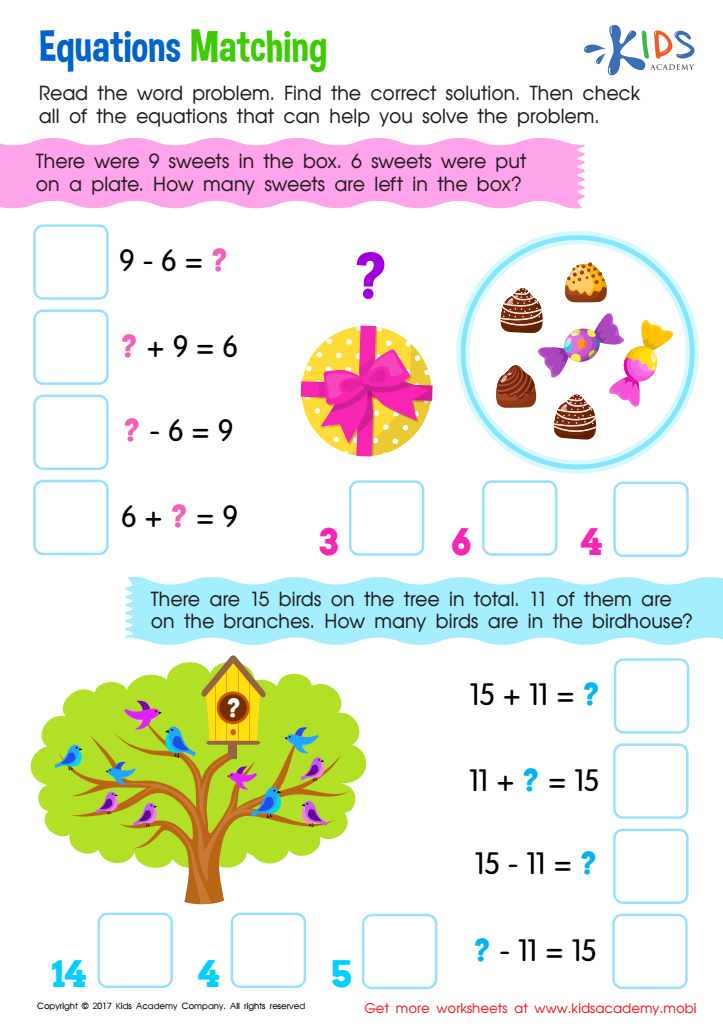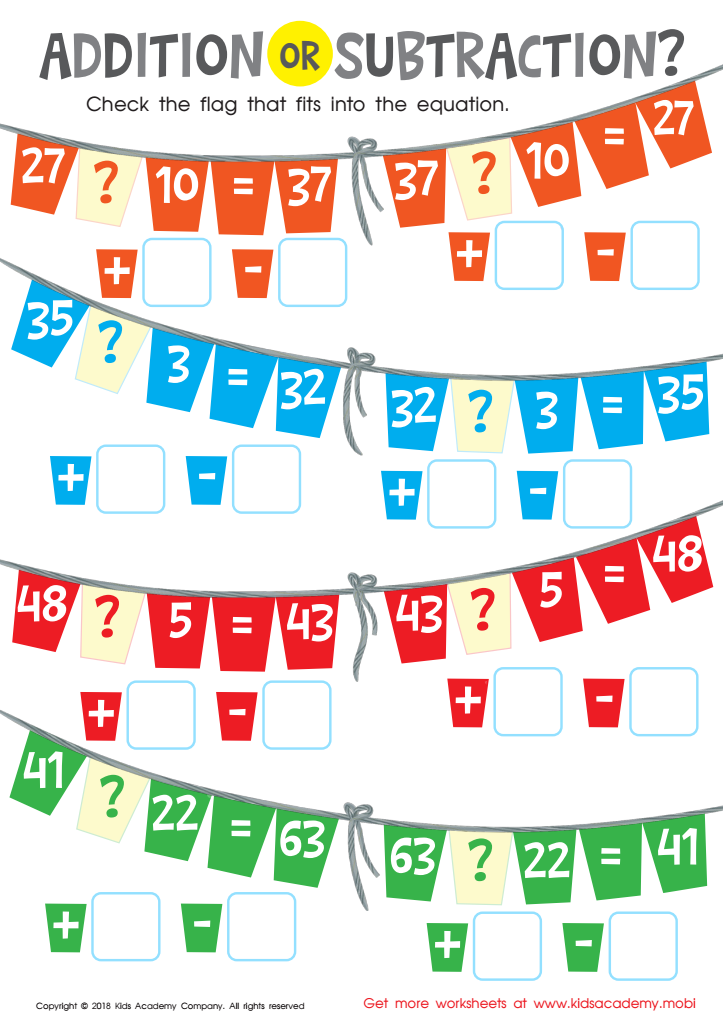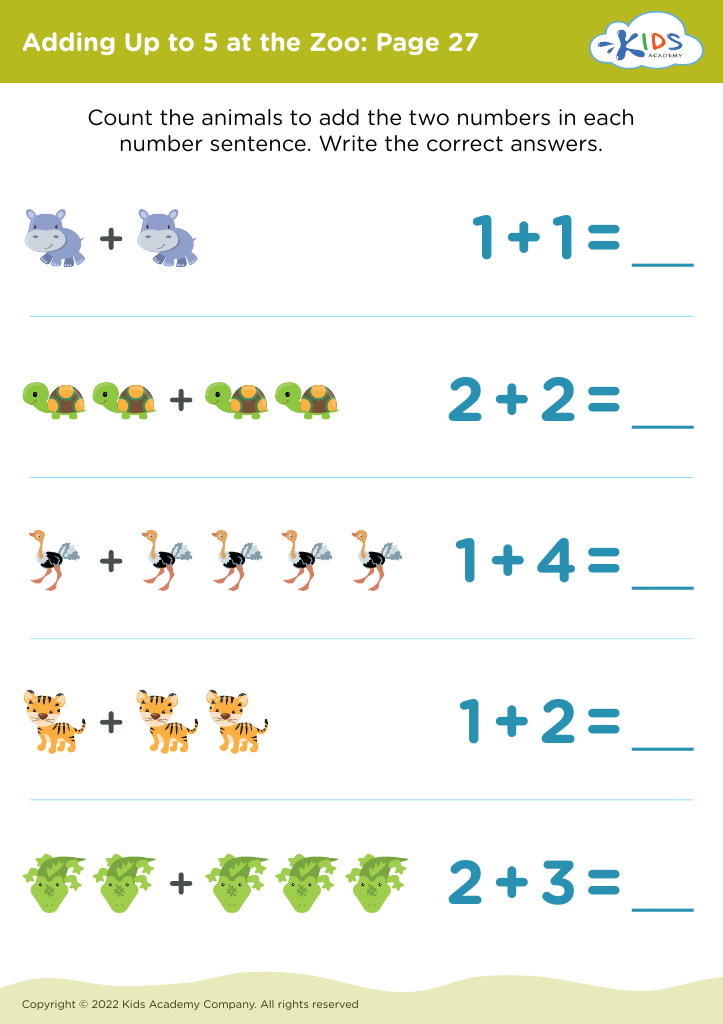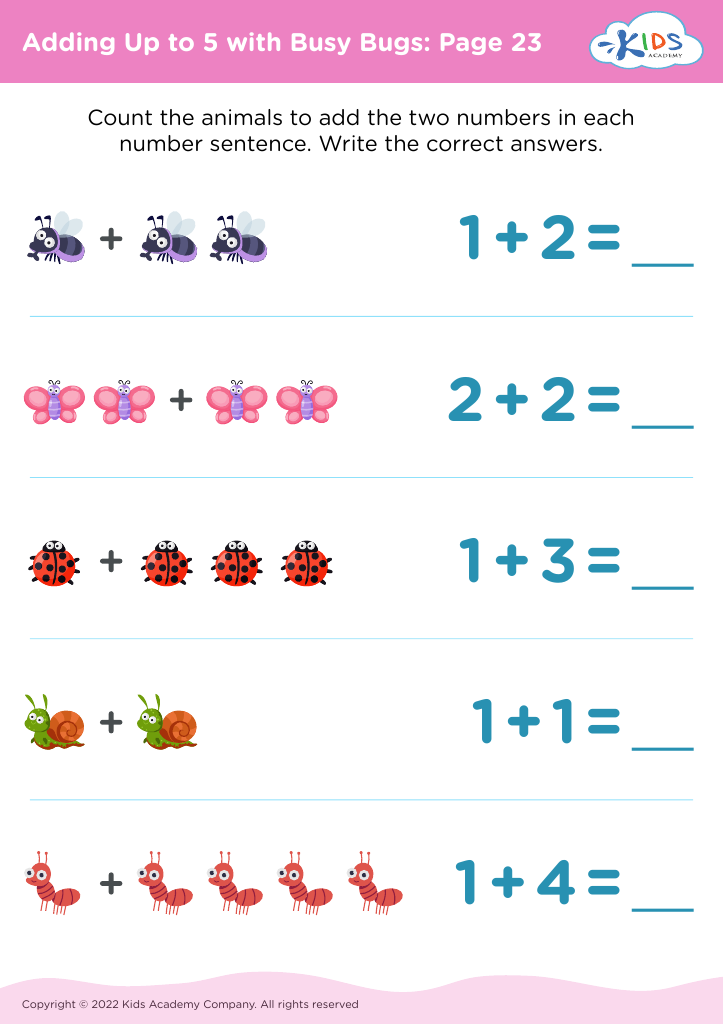Mathematical reasoning Addition Worksheets for Ages 4-6
6 filtered results
-
From - To
Introduce your young learners to the world of mathematical reasoning with our engaging Addition Worksheets designed specifically for ages 4-6. These worksheets provide a fun and interactive way to help children understand fundamental addition concepts while enhancing their critical thinking skills. Featuring colorful illustrations and age-appropriate challenges, they encourage kids to explore numbers and solve problems independently. By fostering a strong foundation in mathematics, our worksheets promote confidence and curiosity in young minds. Perfect for at-home practice or classroom activities, these resources lay the groundwork for future mathematical success. Join us in making learning math enjoyable and rewarding!


Tricky Problems Worksheet: Part 1


7 Continents and 7 Seas Worksheet


Equations Matching Word Problems Worksheet


Addition or Subtraction? Worksheet
Mathematical reasoning in addition for children aged 4-6 is crucial as it lays the foundation for a child's overall numeracy skills and cognitive development. At this age, children are highly receptive to learning, and grasping addition through logical reasoning helps them understand not just the "how" but the "why" behind mathematical concepts. This engagement fosters critical thinking, problem-solving skills, and the ability to make connections between numbers and everyday situations.
Additionally, care for this aspect of learning encourages a positive attitude towards mathematics. When parents and teachers present addition as a puzzle to solve rather than a rote task, children often experience greater enjoyment and confidence in their abilities. This nurturing environment makes them more likely to embrace mathematical challenges as they grow.
Furthermore, mathematical reasoning fosters social skills, as children often collaborate or engage in activities with peers. The communication involved in explaining their thought processes enhances language use and promotes cooperative learning experiences. By investing time and effort into developing mathematical reasoning in addition, parents and teachers equip children with essential skills and a mindset that will benefit their academic journey and create resilient learners prepared for future challenges.
 Assign to My Students
Assign to My Students























